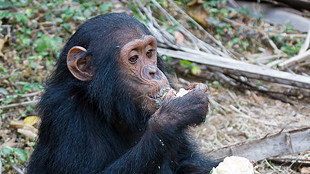 WIKIMEDIA, IKIWANER
WIKIMEDIA, IKIWANER
The National Institutes of Health (NIH) will finalize plans for what to do with its remaining research chimpanzees by the end of March, Wired Science reported. The decision follows years of arguments over the scientific value and ethical implications of using chimpanzees in the lab.
The agency will be deciding whether to follow recommendations from a report released earlier this year (January 22) by a working group of the Council of Councils, a federal advisory group, which recommended that the agency retire all but 50 of its approximately 450 research chimpanzees. The report is open for public comment until March 23.
Already this past September, after the University of Louisiana at Lafayette’s New Iberia Research Center declared it would not apply for renewal of its ...




















